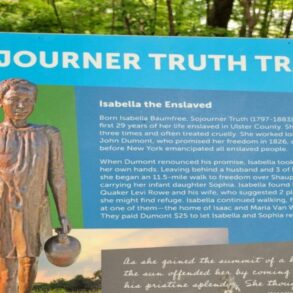On Wednesday, February 19th, 2020, at the national headquarters of All of Us or None, in Oakland, California, from 6:30 p.m. to 8:30 p.m., will be a campaign to Free All Hunger Strike Representatives and Promote the Prisoner Human Rights Movement! This event is the first of 12 performances which will highlight the work of former prisoner, Minister King X. The aim of the event is to educate participants and to bring to light, issues concerning this particular Class of Tortured Prisoners having suffered decades of Solitary Confinement. We will learn about their extraordinary effort to end CDCR’s tactic of indefinite solitary confinement through peaceful protest hunger strikes, and the authoring of what could be considered the most important document of the past 30 years, the Agreement to End Hostilities.
Susan Burton; Released 1987
Susan Burton’s life spiraled out of control after her five-year-old son was struck by a police car and killed. She would eventually turn to drugs to cope. This led her onto a downward path of an addict’s life, incarceration, reincarceration, incarceration, reincarceration. Burton attributes her turn around to a court that sent her to a rehabilitation facility in a more affluent part of Los Angeles. Compared to the rehabilitative services she had been receiving in the less influential parts of the county; here, she was being pampered and treated like a queen. This was crucial, to raising her confidence and self-esteem. Eventually, she would save $12,000 to buy a bungalow in South Central Los Angeles. This was in a rough neighborhood. Staying sober was one thing. Finding support was another. When she tried to sign up for a program to become a licensed home care aide, she found out that a felony conviction meant she could never earn a license in the field. Virtually all the resources an addict would need to keep clean and out of jail, food stamps, housing assistance, easy employment access, were out of Burton’s reach because of her record. Steadfast about not going back, Burton came up with a plan. She knew she could help other women like herself, and that nobody could tell her “No.” From her years in the prison system, she knew that Greyhound buses arriving from California’s prisons routinely deposited parolees in downtown Los Angeles’ Skid Row, an area infamous for rampant drugs, crime and homelessness. In 1998 Burton started going to the bus station and inviting women she recognized to stay at her home. Eventually, she would run into rough economic times. Burton was paying for everything, her savings were rapidly dwindling, and when she lost her job, well, you can imagine what happened next.
Burton’s shelter has grown to five transitional residences in downtown Los Angeles that have served a total of 600 people. The organization operates on a $1 million budget, with 10 employees managing services for women rebuilding their lives after prison, including lodging, food, legal aid, and job training. Now Burton is advocating for former inmates on the national level with the groups All of Us or None and the Formerly Incarcerated & Convicted People’s Movement, both of which she helped found. In 2017, Susan became a best selling author with the release of her memoir, BECOMING MS. BURTON.
Reginald Dwayne Betts; Released 2005
Reginald Dwayne Betts was sixteen when he and an accompliance, carjacked a sleeping motorist. He was charged as an adult and consequently spent more than eight years in prison. Fourteen of those months were spent in solitary confinement. While in solitary confinement, someone slid under his cell door the 1971 anthology, The Black Poets. The book exposed him to Nikki Giovanni, Robert Hayden, Etheridge Knight, Sonia Sanchez, and others. Soon, he was typing up poems in the prison’s law library, while also teaching himself the basics of law.
Upon his release he found a job working at Karibu Books in Bowie, Maryland. He was eventually promoted to store manager and founded a book club for African American boys. Betts became the national spokesman for the Campaign for Youth Justice, and advocates for juvenile-justice reform. He also visits detention centers, inner-city schools, and talks to at-risk young people. In 2012, President Barack Obama named Betts as a member of the Coordinating Council on Juvenile Justice and Delinquency Prevention. In 2016, Betts graduated from Yale Law School and passed the Connecticut bar exam. In 2017, the Arts for Justice Fund granted the University of Arizona Poetry Center, $500,000 to commission new works of poetry on issues of mass incarceration. The three-year project was headed by Betts. In 2018, Betts worked as a consultant for the podcast series Caught: The Lives of Juvenile Justice, produced by WNYC. The series explored cases of children and adolescents who found themselves in the criminal justice system, the circumstances surrounding their lives, and legal cases. In 2019, his collaboration with painter Titus Kaphur produced a series of works entitled The Redaction. Redaction was exhibited at MoMa PS1. It presented more than 30 prints of public programs that examine issues of money bail, the state and federal court systems for which those arrested are unable to afford bail, and how they remain incarcerated despite having neither been tried nor convicted.
The work drew from lawsuits filed by the Civil Rights Corps (CRC) on behalf of people incarcerated because of an inability to pay court fines and fees. The Redaction features poetry by Betts in combination with Kaphar’s etched portraits of incarcerated individuals. Betts utilizes the legal strategy of redaction to craft verse out of legal documents, capturing the complicated and pervasive effects of time spent incarcerated. These poems were screenprinted by Kaphar onto handmade paper using the Redaction font, a new open-source typeface created for the project. Betts is the author of three collections of poetry, Felon, Bastards of the Reagan Era, and Shahid Reads His Own Palm, as well as a memoir, A Question of Freedom.
Shaka Senghor; Released 2010
Shaka Senghor was convicted of second-degree murder at the age of 19, and released at the age of 38 in 2010. Senghor has spent the last decade making a name for himself as a change agent to those who are given a second chance on the other side of the prison wall. He has worked as the director of strategy and innovation for #cut50, an organization co-founded by Van Jones. #cut50 works on criminal justice reform policies including re-entry initiatives and reducing the restrictive nature of probation and parole. He has worked as a consulting producer for Oprah Winfrey’s OWN Network’s Released, a show that lets audiences witness the challenges faced by people recently released from prison. Senghor has held the post as the Executive Director of the Anti-Recidivism Coalition (ARC), founder by Scott Budnick, a peer support network to the formerly incarcerated. He also became a best selling author with the 2016 release of his memoir, Writing My Wrongs: Life, Death, and Redemption in an American Prison.
Minster King X; Released 2019
Minister King X first encountered the judicial system at 8 years old when he was arrested for trying to steal a 35-cent bag of chips from a vending machine. King, a manchild of the ‘70s, was raised by his father, a singer, musician and artist, who worked hard to take care of King and his four younger siblings. While there was no shortage of love in King’s household, he experienced firsthand the suffering caused by a deprivation of basic necessities. Inclined to care for and protect his father and young siblings, King learned how to navigate within a world of unmet needs. This eventually led him to a series of bank robberies “to support the poor peoples’ movement,” he states. With his stolen loot, King bought books and shoes for his siblings and helped his father and friends with rent. “A Black Robin Hood,” he called himself. As a flourishing hip hop artist known as Pyeface, aka the George Jackson of rap, King also supported his passion for the arts. Eventually King was caught with his hands in the cookie jar, and while luckily nobody was physically hurt, he was sentenced to six years in federal prison. Only months after being released from the feds, King found himself accused of a bank robbery. While he knew the perpetrators and had in fact provided them with tips on how to pull off a bank robbery, he did not directly participate in the crime. Nevertheless he was arrested, tried and convicted, and subsequently sentenced to 16 years in prison. While in prison, mostly in solitary confinement, he became an outspoken political writer and strategic agitator, which incurred constant retaliation from prison guards as well as a five-year extension added to his original sentence.
At the start of the millennium, after seeing the mid and late ‘90s as a registered rapper with Highside Records, doing time in the feds, he birthed into existence KAGE, Kings Against Genocidal Environments, now known as Kings and Queens Against Genocidal Environments, or United KAGE Brothers and Sisters International Union. As a developing jailhouse lawyer, King explains, “challenging the system became a lifestyle.” It was King’s knowledge of the law and refusal to succumb to prison officials’ attempts to degrade and silence him that led guards to plant a weapon on him in 2010 and subsequently sentence him to three consecutive years of solitary confinement in one of California’s notorious Security Housing Units (SHUs). With no staff accountability or legitimate due process, it can take the contempt of only one guard to find oneself arbitrarily condemned to solitary confinement for months or years. Prior to being transferred to the SHU, King was funneled through a “short-term” Administrative Segregation Unit (ASU), also solitary confinement. While ASU terms are generally shorter than SHU terms, in ASU people don’t have access to their property, including TVs or radios. It is often an individual’s first time experiencing torture by extreme sensory deprivation, and suicide rates are high. Knowing that he faced three years of solitary confinement, King made the decision to better himself through study and meditation so that he could more effectively challenge and ultimately change the system and contribute to the strength and wellbeing of his community, both inside and outside the prison walls. He rejected materialism and decided to “play chess versus checkers,” using strategic foresight at all times.
In SHU, King found himself surrounded by some of California’s greatest thinkers, including OGs who had survived decades of solitary confinement through self-education, empowerment, and a deep sense of soul, self, and determination. These men included Sitawa Nantambu Jamaa, Mutope Duguma, Heshima Denham, Michael Zaharibu Dorrough, Paul Redd, James Baridi Williamson, Louis Powell, and others. Several of these men were members of the Short Corridor Collective, which organized the massive California Prisoner Hunger Strikes of 2011 and 2013, and created the historic Agreement to End Hostilities in 2012, a document created to counter CDCR’s efforts to sow discord, violence and division. The Agreement to End Hostilities promoted the very thing King had already come to embrace, solidarity as an act of resistance.
King has always been influential behind the wall, especially when it comes to the arts. A prolific writer of raps and plays, he also excels in the performance arts, such as spokenword and theater. To get into the detail of King’s artistic influence would not do it justice in a single article. In 2018, he was a principal writer in the No Joke Theater’s production of Lost and Found. His revolutionary spirit comes through in We Must Find Our Wings. A play he wrote about a local hip-hop radio station and one of its disk jockeys, Radio DJ, and his interactions with listeners during the call-in segment of his radio show. In Playing My Strike a work so powerful, the men at California State Prison Los Angeles County, where it was performed, were still talking about this piece a year later, and it influenced prisoners at this prison to participate in the 2018 nationwide prisoner strike.
Upon his release, he immediately hit the ground running, becoming involved with the national chapter of All of Us or None in Oakland, California. In less than 30 days after his release, King was a principal organizer and participant in a fundraiser for the San Francisco Bay View newspaper called Truth Be Told: The Darkside of Gentrification, co-hosted by KAGE and All of Us or None. Founded in 1976, the San Francisco Bay View is known as the national Black newspaper that serves as a network for freedom fighters. Many of the prison policy issues being debated by presidential candidates were first proposed by prison writers and thinkers on the pages of the Bay View and its website. In December of 2019 was the Artivists in Action and Solidarity, a fundraising event that had emerged from a powerful alliance and special bond between two Bay Area-based newspapers, the San Francisco Bay View and the California Prison Focus, and King’s prison-based anti-hostility group, KAGE. The event offered a special opportunity to honor the legacy of SF Bay View publisher, editor, and unsung heroes Willie and Mary Ratcliff by presenting the first annual Ratcliff Award to another unsung hero within the community. King conceptualized this art-centered event from within the confines of his cell, with plans to implement both the event and the KAGE program. The event used art to shine a light on the hidden atrocities of prison, to gain the release of imprisoned elders, to support imprisoned artists, and to support the two publications that inspired and empowered King throughout his journey. The event raised money through a silent prisoner art auction, and the proceeds went to participating prisoner artists, the SF Bay View, and the California Prison Focus.
Since December, King is now the Co-Director to the California Prison Focus.
The event on Wednesday, the International Prisoner Human Rights Movement/Liberate the Caged Voices Campaign to Free the Organizers of the California Prisoner Hunger Strikes is his brainchild. King is particularly commited to bringing the realities of prison to the youth using pop-culture, or, as he puts it, “Bringing substance to hip hop.”
[Editor’s Note]: the video, San Quentin X by Minister King X, aka Pyeface was published on Feb 7, 2020. It is the first of a political/historical series, written in Pelican Bay State Prison, from the not yet released soundtrack of the CPF K.A.G.E. musical production: From the K.A.G.E. to the Stage: Agreement to End Hostilities, correlated to the 2011 and 2013 California Prisoner Hunger Strikes, instrumental in placing limits on the otherwise unfettered use of solitary confinement torture in California prisons.
This song was gifted to California Prison Focus (Prison Focus newspaper) and San Francisco Bay View who supported Min. King X during his years in solitary confinement.
Support SF Bay View at https://sfbayview.com/donate
or California Prison Focus at http://newest.prisons.org/donate
To learn more about Min. King X visit http://newest.prisons.org/speakers/37
This post was originally published on this site be sure to check out more of their content.




